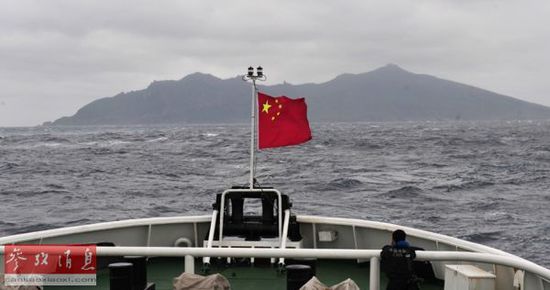

 |
| (File Photo) |
BEIJING, May 28 -- Recent remarks made by some senior U.S. officials on the South China Seaissue are not only unjustified but also harmful to regional peace and stability.
Commenting on China's legitimate island construction in the South China Sea, U.S. Defense Secretary Ash Carter said at a military ceremony in Hawaii Wednesday that U.S. military aircraft and warships would continue to operate in the area as some countries were "increasing demand for American engagement in the Asia-Pacific."
He echoed U.S. Vice President Joe Biden, who told young cadets of the U.S. Navy Academy last week that China is the destabilizing factor in the South China Sea and the United Statesshould keep peace in the region "as it has for the past 60 years."
Carter's speech also came a week after a U.S. P-8A anti-submarine and maritime surveillance aircraft flew over waters off China's Nansha Islands.
Clearly, the United States wanted to play up China's construction activities and portray the country as a threat to regional stability, in a dangerous and irresponsible move that may lead to miscalculation and untoward incidents.
Those irresponsible, to some extent, provocative statements are nothing but an excuse and old trick for Washington to support its future operations, which will inevitably fan the flame for regional instability and exacerbate the already complicated situation.
The United States, which is not a party to the South China Sea issue, has no right to intervene in China's island construction activities, which are within its sovereignty and aimed at facilitating service for marine search and rescue, disaster prevention and reduction, and navigation safety.
Since China's construction is peaceful and beneficial to the public, Washington's botheration over the so-called freedom of navigation and maritime safety is utterly unjustified.
As a matter of fact, when it comes to the land reclamation activities in the region, the United States has always torn off its mask of hypocrisy and revealed a face of "double standard."
While pointing an accusing finger at China, Washington has chosen to keep silent on such activities conducted earlier by some other countries that illegally occupied Chinese islands and reefs.
Moreover, it can hardly be accepted as a coincidence that the previously calm South China Sea has lost its tranquility since Washington embarked on its "Pivot to Asia" strategy.
Thus, Washington's exaggeration of navigation freedom concerns is just a pretext to maintain its hegemonic presence in the Asia-Pacific region.
China is making efforts in building "a community of common destiny" with countries, regions and the whole world for common development and prosperity, advocating that countries that have territorial and maritime disputes seek peaceful settlement through dialogue and consultation rather than confrontation.
Peace and stability in the Asia-Pacific region are conducive not only to the countries in the region but also to those beyond.
If Washington really wants to promote peace and stability in the Asia-Pacific, it should stop stirring up troubles in the South China Sea and make a correct judgment and better understanding of China's strategic intention and fundamental policies.
 J-11 fighters in air exercise
J-11 fighters in air exercise Beauties dancing on the rings
Beauties dancing on the rings Attendants-to-be join Mr. & Miss Campus Contest
Attendants-to-be join Mr. & Miss Campus Contest Beijing's toughest anti-smoking law takes effect
Beijing's toughest anti-smoking law takes effect Family lives in cave for about 50 years in SW China
Family lives in cave for about 50 years in SW China PLA soldiers operating vehicle-mounted guns in drill
PLA soldiers operating vehicle-mounted guns in drill Blind carpenter in E China's Jiangxi
Blind carpenter in E China's Jiangxi China hosts overseas disaster relief exercise for the first time
China hosts overseas disaster relief exercise for the first time 20 pairs of twins who will become flight attendants in Sichuan
20 pairs of twins who will become flight attendants in Sichuan Obama is sowing discontent in S.China Sea
Obama is sowing discontent in S.China Sea Rescuers work through night to reach cruise ship survivors
Rescuers work through night to reach cruise ship survivors Driving through limbo
Driving through limbo Facing down MERS
Facing down MERSDay|Week